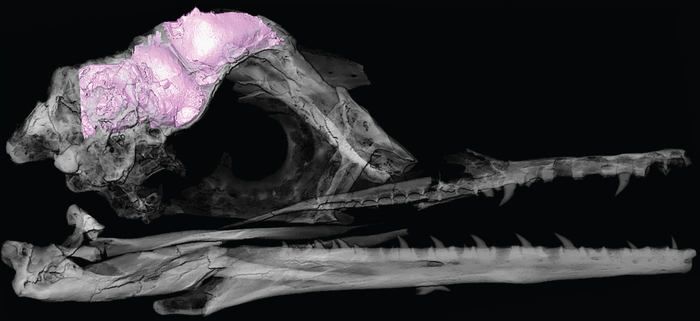RICHARD PRUM: The origin of the birds has been a classical challenge in evolutionary biology. Traditionally, for most of the 20th century, birds were so different from other vertebrates that they were really considered to be a group apart from other vertebrates: birds and animals. And scientifically what that came to mean is that birds were a kind of reptile with no particular relation to any specific reptiles. However, in the late 20th century, scientists who were interested in explicitly reconstructing the tree of life — that is the genealogy of species— building the tree of life, discovered that birds evolved from a group of theropod dinosaurs, those are the big, bipedal meat-eaters, like Velociraptor and T-Rex, et cetera. This opinion was extremely controversial at the time and lead to a protracted debate for decades between the theropod origin — or the dinosaur origin — of birds and what came to be known as the "dino deniers", folks that rejected the dinosaur origin of birds but were unable to explicitly articulate an alternative hypothesis for the origin of birds.
This is really a case study of how scientific revolutions happen, because early on this seemed like a crackpot theory, but over basically about two decades, three decades, the evidence started to pile up until finally it was irrefutable. Of course, the final and most dramatic evidence of this was the origin of feathers. And when people found feathers on theropod dinosaurs — like close relatives of Velociraptor, the guy who chased the kids around in the kitchen in Jurassic Park — then people really realized, "Wow, birds are dinosaurs!" And in this sense they didn't just come from dinosaurs, they are dinosaurs living amongst us — 10,000 species found on all continents around the world. So the answer to how scientific revolutions happen is always "do good science". And since science is a self-repairing process, that is it improves itself with the scrutiny and new evidence, that progress has really lead to knowledge in this case.
The pattern of progress in modern science is incontrovertible. However, one of the downsides of progress is a kind of false scientific confidence. Based on previous results one can start an investigation or an inquiry with a sort of "a priori" or "from the beginning" certainty about how it should or is going to work out. This can be a real problem, in fact, because it's so congruent with what human minds have evolved to do, which is to assign agency to patterns and thereby learn about mechanisms in the world. However as a scientist, it's important to remain open minded. There are some structures in how we think about science that allow us to catch ourselves, if you will, and make sure that we're not making a mistake. One of them is to always have a null hypothesis or some simultaneous model or explanation of the data at hand, which posits that "nothing special is happening". So before we can conclude that our favorite nifty idea is actually occurring, we have to be able to reject the idea that nothing special is going on.
An example of null hypotheses include things like "cigarettes don't cause cancer". In order to confirm that cigarettes cause cancer we need to reject the null hypothesis that they don't, and so that's part of the structure of science. Now lots of people think of the null hypothesis as simple or simpler, but in fact if cigarettes don't cause lung cancer then all those cases of lung cancer are individually different and complicated, so the null hypothesis can actually be a more complicated explanation than the main hypothesis or the signal hypothesis. So in science, especially in evolutionary science, we have found that it's really important to overcome our rational desire to see meaning and direction in everyday dissent and ask the question: Do we know if anything special is really happening?





